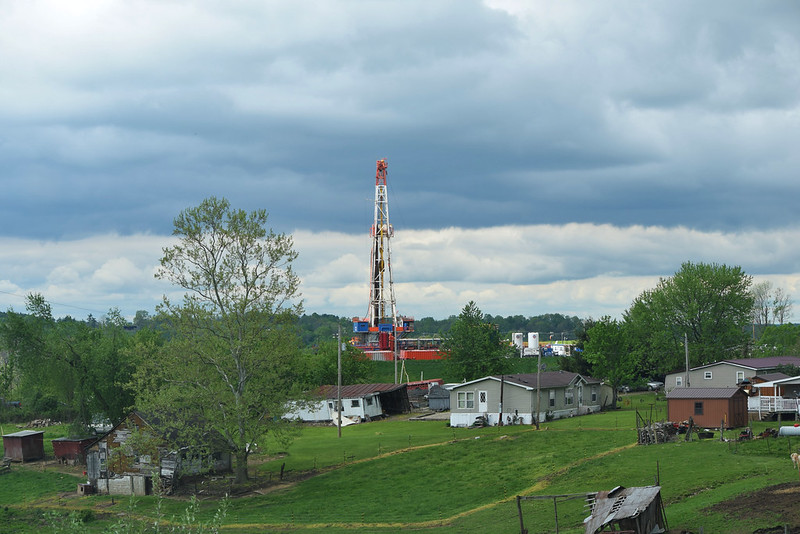
This is the 24th installment in our What’s on your mind? blog series and was written by CCJ Organizing Director Heaven Sensky. Do you have something on your mind? Write about it! Please read this blog for more information.
I’m sure like many of you, I found it difficult to sleep at night after the meeting about the results of the Pitt PA Health and Environment studies. Not because I was in despair, but because I was reeling with energy from the meeting. I was asked by a reporter what I was most angry about coming out of the meeting, and I paused to think of the crucial reason my stomach was turning. I found myself unable to, and responded that I was far more hopeful than I was angry.
I want to unpack that here with you because it is an extraordinary place to sit in hearing these results. It is a confusing seat to be in to be validated, frightened, and frustrated all at once.
For context, the study found the following:
- People with asthma living near wells during the production phase have a 4-5x greater chance of their asthma getting worse, including increased hospitalizations.
- Children living close to wells have a 5-7x greater risk of developing lymphoma.
- Babies whose mothers lived near active wells were 20-40 grams smaller at birth.
The study did not find evidence of an association between proximity to fracking and Ewing Sarcoma in children or young adults.
This study is on par with other studies that have shown health harms in our communities. While it is frustrating that these results didn’t tell us more, I want to remind everyone that epidemiological studies do not produce perfect information. Despite that, this study did show harm. None of the studies included sampling or in-person interviews of families. The asthma study was limited to UPMC health data, despite Washington Health System, Allegheny Health Network, and WVU medicine being the sole providers in Washington and Greene Counties. The cancer study relied on cancer registry data that was not wholly accurate with resident addresses, and only 40% of respondents confirmed that the data was accurate. All of this to say that the studies showed harm, without being perfect.
I would love to see more investment in identifying why our communities are experiencing such detrimental poor health impacts, and I hope that the state makes those investments.
However, like all of you, I feel that we are experts in our own experiences and the alarming findings of these studies is enough for me to stand on the side of choosing our children’s health and well being over industry profits.
I will close this out by saying that I did not drive home from that meeting in despair but with hope. I was hopeful looking around that room at dozens of people who are so deeply committed to their friends and neighbors’ safety that they continue to show up and put themselves in uncomfortable positions to speak truth to power. I was hopeful sitting alongside Janice and her family and Christine, whose bravery and strength inspires me everyday, and gives me every reason to continue this work despite it being such an uphill battle. I was hopeful as the findings, and our voices, were shared by dozens of news outlets across the region and the country. I was hopeful as scientists, nurses, doctors, investigative journalists, and residents stood up and asked tough, thoughtful, well-informed questions. I was hopeful because I know we are not alone in this.
Four years ago, a group of us from Little Washington County moved 3.5 million dollars of the state’s budget to produce these findings with nothing but our voices. There is nothing we can’t achieve going forward, together.
At CCJ, we will be working to strengthen Pennsylvania’s environmental justice policy and to implement some of the recommendations of the Grand Jury and others.
And as always, we need your input! I hope to see you at the next MAD-FACTS meeting on Wednesday, September 27th at 6 pm at North Strabane Township Park. We have a lot to discuss, a lot to learn from one another, and a trip to Harrisburg to plan. Our discussions will include what policy recommendations we want to make! Bring a friend, bring a neighbor, and bring anyone willing to listen.
Register here for the next MAD-FACTS meeting!
You can watch a recording of the Pitt study results meeting here.

